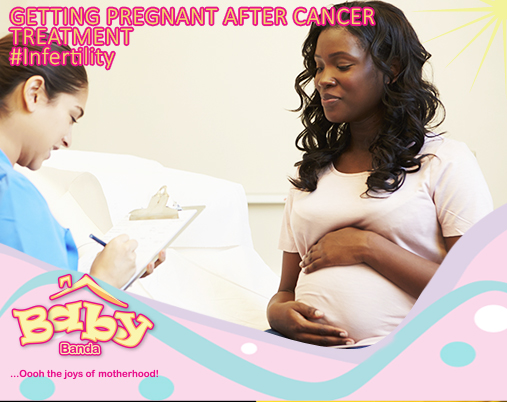For most women that have been declared cancer-free, getting pregnant is usually the next thing on their mind, especially if they are within the childbearing age. In most cases, pregnancy causes no health risk to mother and baby with many women being given a go-ahead by their doctors to try for a baby after treatment.
Even so, some cancer survivors are advised to wait a couple of years before getting pregnant with the amount of time depending on their age, type of cancer and the treatment they underwent to beat the disease. On average, the waiting period can be as short as six months or as long as five years.
All the same, many women have successfully conceived and delivered healthy babies after cancer treatment both in Kenya and abroad. However, it is good to note that many of them encounter challenges that when anticipated beforehand can make the journey much easier and manageable – within reasonable expectations – for many mums.
Some of the things mums-to-be should expect when planning to get pregnant after completing cancer treatment include:
1. Recurrence of cancer
Many experts confirm that pregnancy does not increase one’s risk of having the cancer return. That said, they advise on waiting for a certain time period before getting pregnant. However, for women that are survivors of breast cancer, the increase in hormones during pregnancy has been said to put them at risk of getting cancer again. Also, some cancer medications may need to be discontinued when a woman gets pregnant, which would place a woman at the risk of recurrence of the disease. It is for this reason that couples or women planning to have a baby are advised to discuss the risks involved before starting on the journey of pregnancy.
2. Infertility
Men and women that undergo cancer treatment are at a high risk of becoming infertile because of the use of chemotherapy drugs, radiation or surgery. The risk of infertility when undergoing cancer treatment can only be mitigated by the preservation of fertility beforehand. It is therefore important for women planning to get pregnant to discuss the options available in fertility preservation to increase their chances of having babies after the treatment is done.
3. Cancer risk to children
Cases of cancer survivors passing on the disease to their children are quite low but parents are always worried when they get pregnant. Even so, some cancers are hereditary and can be passed through genes thus making children vulnerable to getting the disease. Men or women that have hereditary cancers need to speak to a specialist in genetics to better understand the risks involved and the best way to minimize such an occurrence in their children.
Finally, making the decision to have a baby after cancer treatment needs careful consideration, whether married or single.
–Talk to your doctor about the risks involved in the pregnancy as well as birth to allow proper understanding and planning.
–Seek help from experts in obstetrics to increase chances of carrying a healthy pregnancy and to deliver a cancer-free baby.
–Lastly, the moral support of good friends and more importantly your choice to seek God’s help will give you the fortitude to walk this journey.














